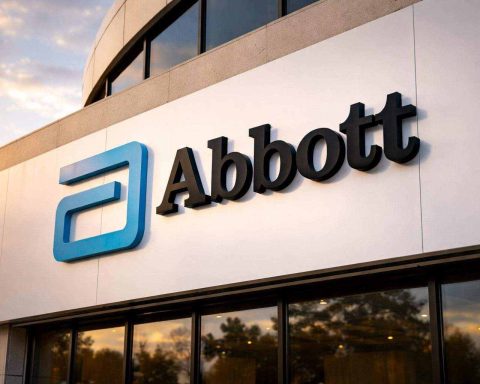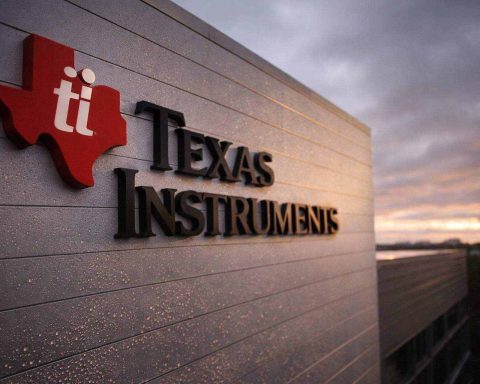- New “cryptobank” charter approved: The OCC granted preliminary conditional approval to Erebor Bank, a crypto- and tech-focused startup, on Oct 15, 2025benzinga.com. Backed by tech billionaires (Palmer Luckey and Joe Lonsdale) and investors like Peter Thiel’s Founders Fund, Erebor won the first new national bank charter under OCC Comptroller Jonathan Gouldbenzinga.com1 .
- Innovation-economy focus: According to filings, Erebor will serve the US “innovation economy” – tech startups in AI, defense, manufacturing and cryptobenzinga.comstocktwits.com. It aims to bridge Silicon Valley’s funding gap left by the 2023 Silicon Valley Bank collapsestocktwits.com. The bank says it will offer traditional deposit and lending services and handle digital assets. For example, stablecoin issuance and transactions will be central: Erebor boasts it wants to be “the most regulated entity conducting and facilitating stablecoin transactions,” holding small crypto reserves on its balance sheet for operationsstocktwits.com2 .
- Conservative, compliant approach: Insiders stress Erebor’s plan is intentionally cautious. A source close to Erebor told the Financial Times: “We want to be a stable, low-risk, reliable bank doing normal banking things without screwing everyone over with undue risk.” Erebor itself says being “extremely conservative” helped its quick approvalstocktwits.comstocktwits.com. The approval came only four months after application, reflecting Erebor’s careful strategy.
- Strict conditions ahead: The OCC’s nod is preliminary. Before opening, Erebor must satisfy standard requirements: secure FDIC deposit insurance, complete full compliance and cybersecurity reviews, and meet capital rules. The OCC letter specifies a minimum 12% Tier‑1 leverage ratio for at least three yearsholder.iobenzinga.com. Only after clearing these hurdles can Erebor start full operations.
- Regulatory shift: Experts say this charter signals a warming toward crypto in US banking. Gould emphasized the OCC imposes “no blanket barriers” to digital assets, adding that “permissible digital asset activities… have a place in the federal banking system if conducted in a safe and sound manner”benzinga.comcoindesk.com. Banking advisors note the OCC under Gould is actually meeting its 120-day charter-review goal: “This suggests that this OCC… is serious about hitting those deadlines, even for relatively novel and complex applications like Erebor,” said Brian Graham of Klaros Group3 .
- Market reaction: U.S. markets barely budged on the news. On Oct 15 the S&P 500 rose ~0.4% and the Nasdaq 100 ~0.7%benzinga.com, while the Dow was essentially flat. Bitcoin traded around $111,000 (about 1% down)benzinga.com and Ether near $3,900 (+1.5%)coindesk.com. Palantir (Lonsdale’s venture) held near $179benzinga.com. Crypto analysts are now eyeing key technical levels: for instance, Bitcoin support around $68K and resistance near $70K, and Ether pushing toward $3,500markets.financialcontent.com, reflecting cautious optimism as regulated banking returns to crypto.
OCC Approval Details
The OCC’s approval letter makes Erebor the first new charter since Gould took over in June 2025benzinga.com. In announcing the decision, Gould stressed that innovative banks need not be blocked: “Permissible digital asset activities… have a place in the federal banking system if conducted in a safe and sound manner,” he saidbenzinga.com. This is a notable change of tone from prior OCC leadership. As Benzinga reports, the OCC applied its usual rigorous standards but ultimately concluded Erebor’s plan was sound, making it “the first de novo bank to receive preliminary approval under Gould’s tenure”4 .
Despite the approval, the OCC letter makes clear the bank cannot open for business immediately. All pre-opening conditions must be met: obtaining FDIC insurance, finalizing a board with qualified executives, establishing cybersecurity and compliance systems, and maintaining high capital buffersholder.iobenzinga.com. The charter mandate specifically requires a roughly 12% Tier‑1 leverage ratio in the first three yearsholder.iobenzinga.com. Only after these steps will the OCC give final sign-off.
Founders and Strategy
Erebor’s origins combine tech and venture capital expertise. It was co-founded in early 2025 by Palmer Luckey (best known as Oculus VR creator and Anduril co-founder) and Joe Lonsdale (8VC founder and Palantir co-founder)stocktwits.com. Early investors include Peter Thiel’s Founders Fund, Haun Ventures (crypto VC), and other tech backersstocktwits.com. The bank is headquartered in Columbus, Ohio, and will be run (initially) by co-CEOs Owen Rapaport and Jacob Hirshman5 .
Erebor intends to serve what it calls the U.S. “innovation economy”benzinga.com. Its target clients include fast-growing technology and artificial intelligence firms, defense contractors, advanced manufacturers, crypto projects, payment processors, venture funds, and trading firmsbenzinga.comstocktwits.com. The aim is to replace the role once held by Silicon Valley Bank (SVB), which collapsed in March 2023 and left many startups and crypto firms scramblingstocktwits.combenzinga.com. In fact, one analysis notes Erebor was conceived to fill exactly that void6 .
Erebor’s mission is to marry Silicon Valley agility with Wall Street discipline. A source close to the bank told the Financial Times that the goal is to build “a stable, low-risk, reliable bank doing normal banking things without screwing everyone over with undue risk”stocktwits.com. In practical terms, Erebor will be a full-service national bank – offering deposits, loans, payment services, etc. – but with dedicated crypto features baked in. Founders emphasize they have a conservative business plan. “Getting approval so fast is a reflection of its extremely conservative business plan,” the insider saidstocktwits.com. In short, Erebor vows to be a by-the-book bank that happens to serve crypto and tech clients, rather than a high-flying crypto startup.
(As background context, this approach mirrors broader tech trends. For example, TS2.tech reports that major banks are now integrating AI at the highest levels: in June 2025 UK’s NatWest named a Chief AI Officer to “build differentiating AI capabilities” across the bankts2.tech. In that way, Erebor is riding the wave of tech-enabled banking – it will explicitly focus on clients in AI, crypto, and defense – sectors at the cutting edge of finance and technology.)
Crypto Services and Regulations
Erebor’s charter spells out special crypto provisions. Its application made clear stablecoin and crypto transactions will be central to the business. The bank told regulators that USD stablecoins (like Circle’s USDC and Tether’s USDT) will form “a significant portion” of its operationsstocktwits.com. It even plans to hold crypto assets – but only small amounts – on its balance sheet to pay blockchain “gas” fees when customers transact. CoinCentral notes the SEC filings expect around $1 million in crypto on hand for operational usecoincentral.com, not for speculation.
This fits a self-described aim to be “the most regulated entity conducting and facilitating stablecoin transactions,” bringing these modern payment tools fully under banking rules. Erebor’s charter application states the bank’s goal is to bring stablecoin intermediation “fully within the regulatory perimeter”stocktwits.com. In practical terms, it means offering customers things like stablecoin custody, transaction settlement, and issuance, but under federal oversight. (This comes at a time when the White House, Congress and regulators have all been wrestling with crypto laws – for example, President Trump’s recent GENIUS Act set rules for stablecoins. Many crypto firms like Coinbase and Circle are now applying for federal bank or trust charterscoincentral.com. Erebor’s approval is part of this larger “crypto meets banking” shift.)
Regulatory Context and Expert Reactions
Analysts say Erebor’s approval reflects a clear policy shift. The OCC under Gould appears more open to digital assets than its predecessor. CoinDesk notes Gould called the move “proof that the OCC under my leadership does not impose blanket barriers to banks that want to engage in digital asset activities”coindesk.com. Gould’s statement – echoed in the Benzinga report – signals regulators are finally willing to let federally chartered banks handle crypto (albeit safely)benzinga.com7 .
Banking experts see this as a milestone. Brian Graham of Klaros Group told Banking Dive that approving Erebor on a ~4-month timeline (roughly the OCC’s standard target) sends an important message. “It suggests that this OCC under this Comptroller is serious about hitting those deadlines, even for relatively novel and complex applications like Erebor,” he saidbankingdive.com. “That should be a very promising signal for the large number of other potential applicants for a bank charter,” Graham addedbankingdive.com. In other words, fintech startups waiting for federal charters may feel encouraged.
Not everyone is thrilled. Senator Elizabeth Warren (D-MA) expressed worries that the Trump-appointed regulators were rushing to benefit Trump allies. In a statement, Warren warned that this “tech-focused and crypto-friendly bank will cater to the financial whims of Silicon Valley billionaires,” noting both Luckey and Thiel as Trump allies. She said “in a free market, credit flows fairly… not to the President’s cronies because of their political connections,” and cautioned that approving this “risky venture” could lead to “another bailout funded by American taxpayers”bankingdive.com. Other critics (including some community banks and credit unions) have protested bank charters for crypto firms, citing regulatory and safety concerns. Even blockchain advocates like Custodia Bank’s Caitlin Long say trust charters and bank charters might collide and could eventually require court review.
Nonetheless, the prevailing view in crypto circles is optimistic. Industry leaders on social media call it a “watershed moment” proving that Washington will allow “responsible crypto banking,” provided safety rules are metmexc.fm. They note that Erebor’s conservative model, and its Fed oversight, makes it a potential blueprint. If Erebor successfully opens, it could become the “US bank for digital currencies and AI startups” – a designated safe haven for the innovators left out by SVB and others.
Market Impact and Outlook
In the short term, markets barely swung on the news. Stock and crypto prices were mixed but calm. On Oct. 15, the S&P 500 ended about 0.4% higher and the Nasdaq 100 about 0.7% higherbenzinga.com, reflecting a broadly positive day for tech. The Dow Jones was flat. In crypto, Bitcoin was roughly 1% lower around $111Kbenzinga.com. Ether traded near $3,900 (+1.5%)coindesk.com. Notably, Palantir (Lonsdale’s longtime startup) was about $179.56 on the Nasdaq, essentially unchangedbenzinga.com. Market commentary suggests traders saw the approval as already anticipated by the sector, rather than an immediate catalyst.
Looking ahead, analysts are eyeing how this development might change the investment landscape. Some technical analysts note that Bitcoin’s price could rebound if it holds support near $68,000, while a break above $70,000 or Ether over $3,500 might trigger fresh upside – moves that easier banking for crypto could eventually justifymarkets.financialcontent.com. In equity markets, the long-term hope is that banks and fintechs serving crypto will benefit. For example, Coinbase (NASDAQ:COIN), Square/Block, or crypto-friendly fintech IPOs might see renewed interest as regulatory barriers fall.
Morgan Stanley analysts (for example) have in recent weeks forecasted more capital inflows to crypto and blockchain stocks on such positive regulation news (though no specific price targets were given). Meanwhile, traditional bank stocks are watching closely: few expect immediate big effects on megabanks, but regional and fintech shares could rally if Erebor’s model succeeds without losses. At minimum, the approval adds credibility to crypto, which some say could underpin higher valuations for related tech firms.
In summary, experts caution that Erebor’s impact will unfold slowly. It must prove it can execute its model under tight supervision. If it does, however, this charter could be the opening act in a broader trend – potentially lifting both crypto assets and tech stocks tied to the digital economy. As one analyst put it: Erebor’s launch “bridges Silicon Valley with the regulated banking system,” a development whose full market implications will become clearer in 2026.
Sources: Recent news reports and filingsbenzinga.comstocktwits.combenzinga.combankingdive.combenzinga.commarkets.financialcontent.com (Financial Times, Bloomberg, Benzinga, Banking Dive, CoinDesk, CoinCentral, StockTwits, and ts2.tech content). These sources provided official details and expert quotes on the OCC approval, Erebor’s plans, and market reaction.






